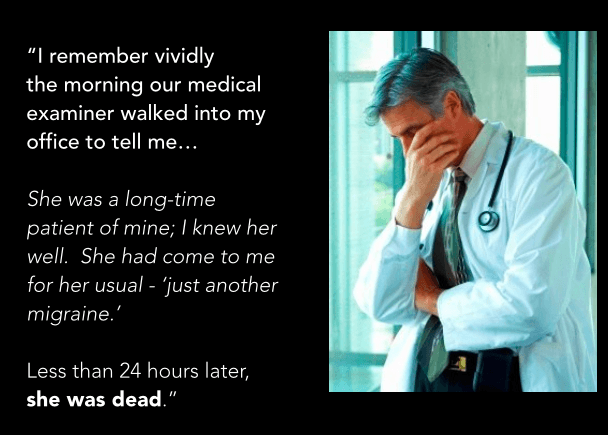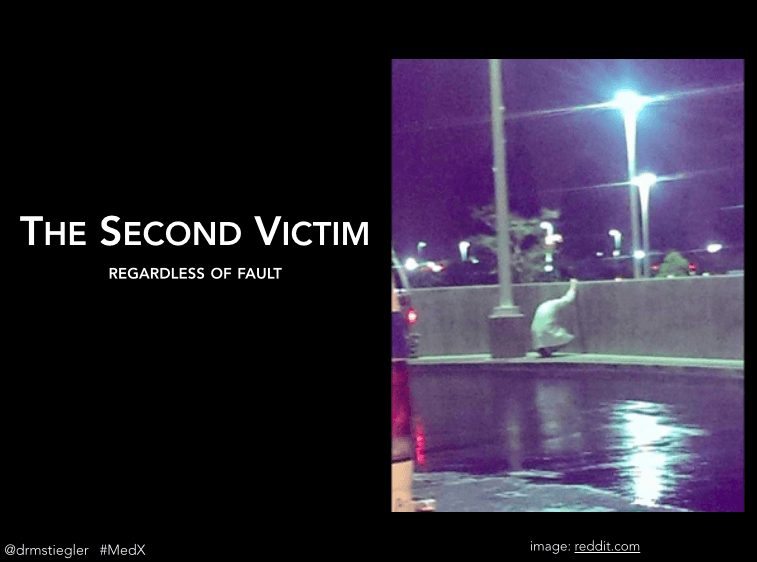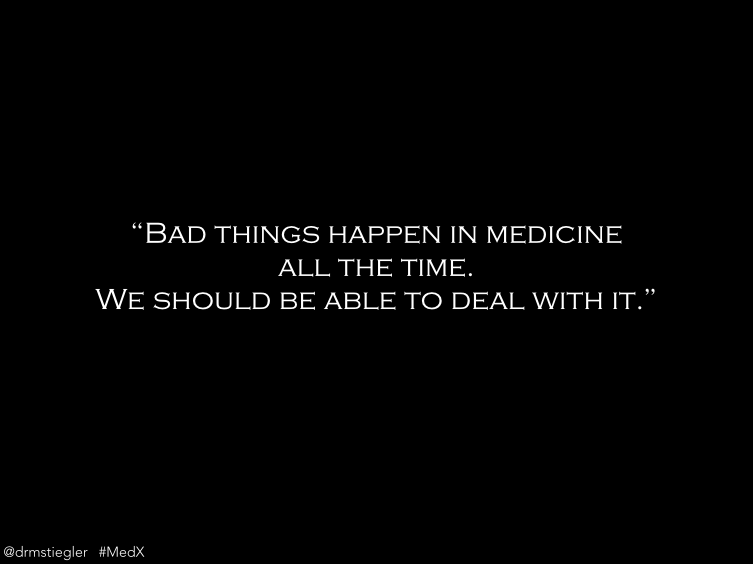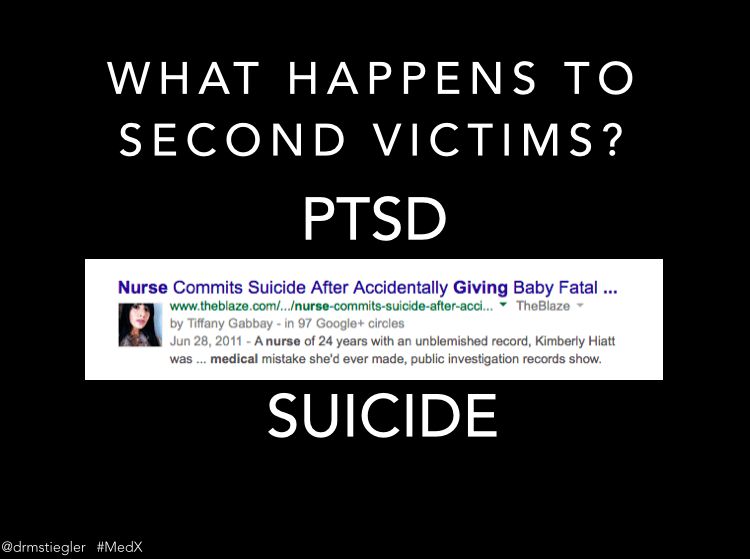Those are the words of a physician, responding to a survey about whether and how doctors are affected by death or other bad outcomes for their patients. Here’s another point of view (you’ll want to allow images to download if you’re reading this via email):
Below is a story recently told to me by a total stranger – a physician who emailed me after reading an article I wrote for JAMA earlier this year. (That’s not him in the photo!)
You’ve probably seen this image below on the internet. Did this doctor make any mistakes? Is there anything he could have done differently, and in this moment (or maybe today) has any doubt or regrets? Perhaps. But sometimes, injury and illness are so severe that even the best experts giving flawless care cannot change the outcome. Death is a part of life.
Really? Perhaps if by “deal with it” the person quoted below actually means to offer psychological support and relief from clinical duty…
Why should we care about this? The impact on clinicians who have devoted their lives to helping others is a terrible tragedy:
There is a powerful cultural expectation that doctors are immune from feelings, and should not experience the normal human reaction to suffering, death, pain, and fear. But it is common sense – even highly skilled professionals in high-stakes jobs need time to recover after critical events (maybe even when the outcomes are good, but the effort to get that outcome was tremendously stressful):

Is there going to be a “third victim”? It is worth considering whether other patients might be harmed, in a domino-effect, if their caregivers have even the slightest trouble concentrating and making critical judgments. There is also an ethical consideration: do patients have the right to know if their nurse or doctor has recently been involved in a bad case which might impact their ability to provide safe or best care?
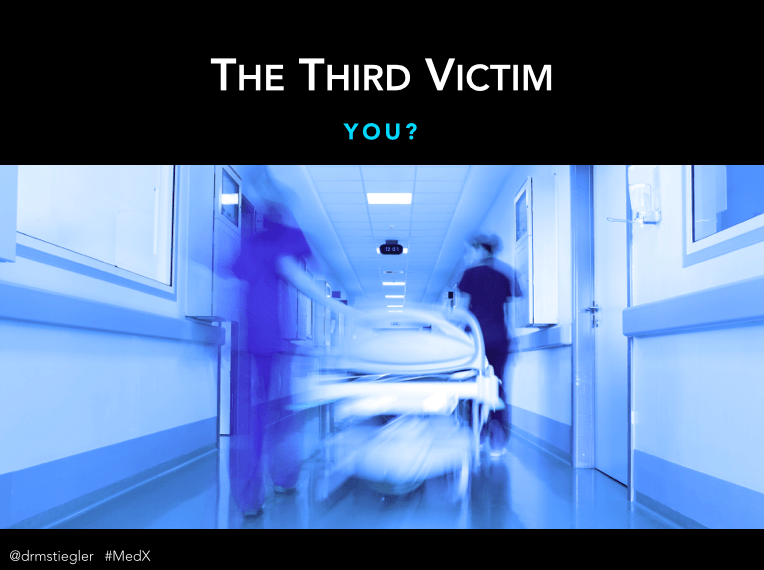
Tweet me and let me know what you think: when bad things happen in medicine, just how should we “deal with it”?

